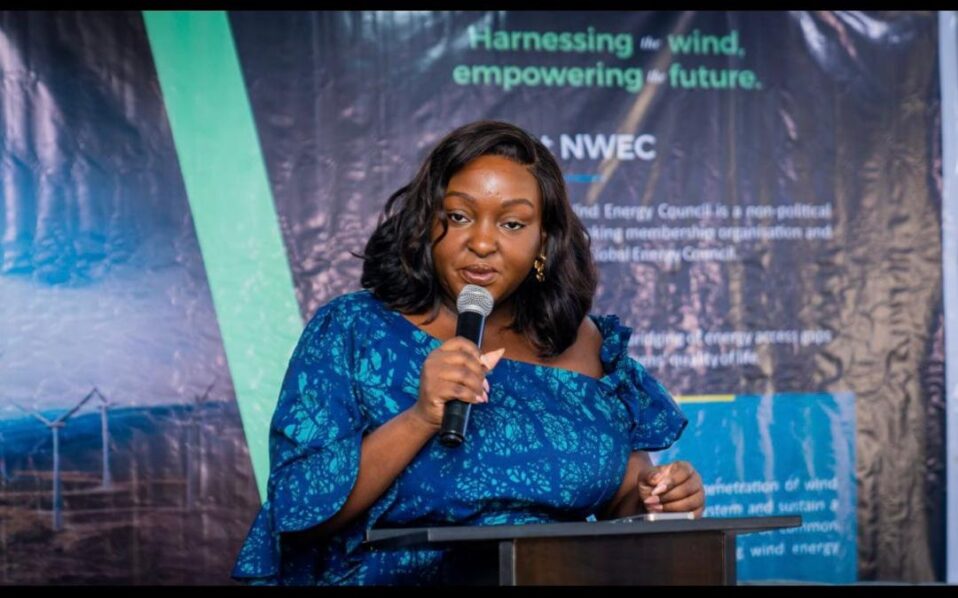 The Global Wind Energy Council (GWEC) is rooting for Nigeria to unlock its 7,000 megawatts wind energy potential amidst new opportunities in the Electricity Act.
The Global Wind Energy Council (GWEC) is rooting for Nigeria to unlock its 7,000 megawatts wind energy potential amidst new opportunities in the Electricity Act.
Director of Africa at GWEC, Wangari Muchiri, speaking on the sidelines of the Accelerated Partnership for Renewables in Africa (APRA) in Nairobi, Kenya, said two Nigerian states have already signed Memoranda of Understanding (MoUs) alongside efforts being made by the Federal Government through the Rural Electrification Agency (REA) to diversify the renewable energy portfolio to include wind.
With most Nigerians facing an energy crisis while the grid system has been epileptic, renewable energy such as wind, which has high potential across the northern and southern states, offers leeway, but Nigeria has not prioritised this energy source.
Globally, investment in wind has surged as the global wind industry installed a record 117 gigawatts of new capacity in 2023, making it the best year ever for new wind energy. Given the climate crisis, the world is targeting to increase this capacity to at least 320 GW by 2030.
Stressing existing partnerships with organisations like the World Bank, the International Finance Corporation (IFC), and the African Union to accelerate renewable energy development, Muchiri said GWEC recently launched the Nigerian Wind Energy Council to promote wind energy advocacy, build industry capacity, and raise awareness about the opportunities wind technology offers.
Muchiri noted that while solar energy has gained significant traction in the country, the public remains largely unaware of the benefits of wind energy.
“Many Nigerians know about solar, but wind energy holds untapped potential, especially in Plateau, Taraba, and even Lagos states,” she said.
The council aims to validate Nigeria’s wind resources, support state governments in developing policies, and encourage energy diversification at the subnational level.
Muchiri said Nigeria could unlock about seven gigawatts of wind energy by 2030, citing projections from the Nigerian-German Energy Partnership.
She emphasised that this figure only represents a fraction of the country’s overall potential, noting the need for detailed assessments of wind resources state by state.
While solar energy has dominated rural electrification efforts in Nigeria, Muchiri revealed that GWEC is working with the Rural Electrification Agency (REA) on a new program to explore non-solar renewables, including wind and small hydro projects.
This initiative would, according to her, also promote hybrid systems combining solar, wind, and batteries.
“The REA isn’t just a solar agency—it focuses on electrification using a variety of technologies. Exploring hybrids like wind and solar or wind and hydro offers enormous opportunities for rural communities,” Muchiri explained.
With Nigeria’s new electricity law empowering state governments to generate power, she stressed the need to shift focus to subnational partnerships.
Muchiri said the council has already signed Memoranda of Understanding (MoUs) with Niger and Cross River states to assess and develop wind projects.
“Engaging with state governments is essential. We want to help them explore their wind potential, attract private sector investors, and develop policies that lower barriers for renewable energy adoption,” Muchiri said.
As part of these efforts, GWEC is organising a roadshow in partnership with the Renewable Energy Association of Nigeria (REAN). The roadshow will tour five or six states with high wind potential, sharing resource assessments with stakeholders and encouraging private sector investment.
“Our goal is to lower entry barriers for wind energy and support policy frameworks that accelerate adoption,” Muchiri said.






